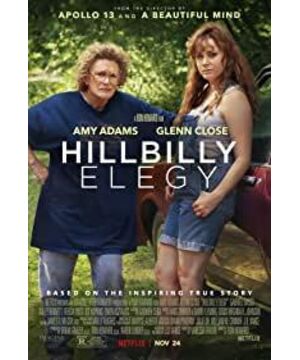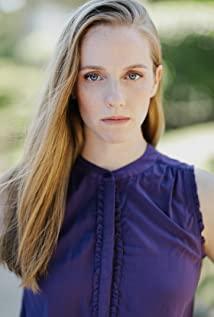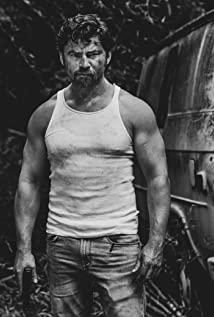For Oscar fanatics, a film starring two most high-profile multiple-nominated, perpetual also-rans, Adams and Close (in toto they have accrued 13 nominations thus far), has only one tacit goal by default, so much so that, it overwhelms everything else, such is the case of Ron Howard's HILLBILLY ELEGY.
Adapted from JD Vance's autobiographical book, the film underscores the conflict between the author's hillbilly upbringing and his Yale college days, while the meat of its story charts his troubled relationship with his mother Beverley (Adams), and the cross-generational rapport with his maternal grandmother Mamaw (Close).
The narrative alternates between two time frames, 1997 and 2011, played by Asztalos as a teen and Basso as the adult, JD flaunts his none-too-spectacular pursuit of the typical American dream - fancy college, the prospect of a remunerative career, and a pretty, understanding girlfriend in the person of Usha (Pinto), your food for thought is that why a second-generation Indian girl from an immigrant family has a far more smoother trajectory to make good than an indigenous white boy hailed from the sticks? - and comes to term with his Appalachian roots and a very bad mother.
However, a vexing feeling arises from the fact that, albeit having major presences in both time frames, Beverley, an inveterate druggie, although repeatedly referred to as damaged goods who has tried her best to fight the monkey on her back, is never shown, not for once, what she has done to better herself. All Adam is apportioned to prove her chops is a desperate, outrageous mother who is prone to lose her marbles, succumb to her jones and make unsound decisions, who solicits cold comfort after giving her son a substantive mind-fuck, ergo, why should we sympathize with this particular peckerwood? Still and all, returning to the grassroots of her role in THE FIGHTER (2010), Adams brings off an unbridled emancipation of a deeply flawed character, with ample ample ammo to unleash her bile to the unfairness of the world.If it were a Beverley's story from A to Z, propelled by such a gritty, rough-edged indomitability, she could finally attain the holy grail, but sabotaged by the script's patchwork and JD's overarching dominance, Adams' chance looks rather dicey.
As for Close, it is a different story, her Mamaw is hemmed in the 1997 time line as a supporting character and Close tops off her stupendous physical transformation with an undimmed sharpness as the potty-mouthed grandma who wisely knows what is better for her grandson , she runs away with this spunky, sprightly savior figure, and establishes Mamaw as the sole backbone to shore up the crumpling family, who seems to single-handedly help JD revert to the right track.
HILLBILLY ELEGY courts quite a lot brickbats from the critics (a divide between critics and audience has become a new norm), as I see it, the occasion is mostly due to its inopportuneness, its glorification of a white male privilege is particularly jarring with our current ethos, thinking of Lindsey, JD's elder sister, play by Bennett with incredible magnanimity, who is saddled with a very different path of life because of what? She is a corn-fed girl, entering into a marriage and ministering to her parents is assigned to her like a sacred cow, and her unconditional acceptance in a way, says a lot about the author himself, if that whiff of male-chauvinism is not intended, it is because JD is just a common fruit of a jaundiced society. He succeeds and his sister doesn't, as far as the film goes,that does shriek for a sea change in gender equality, unfortunately, this is not what in the minds of the film's creators.
referential entries: David O. Russell's THE FIGHTER (2010, 7.8/10); Maggie Greenwald's SONGCATCHER (2000, 7.5/10); Ron Howard's COCOON (1985, 6.2/10).
View more about Hillbilly Elegy reviews











